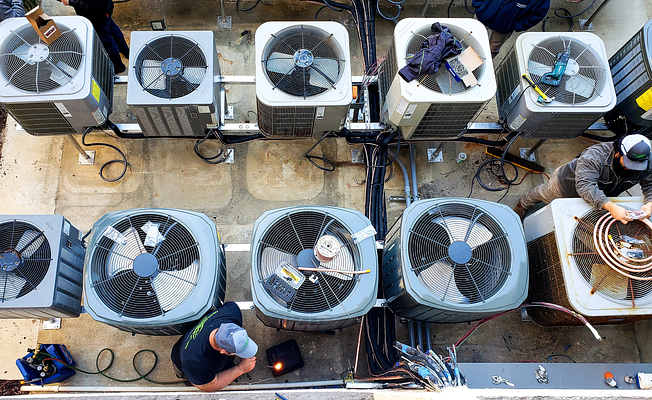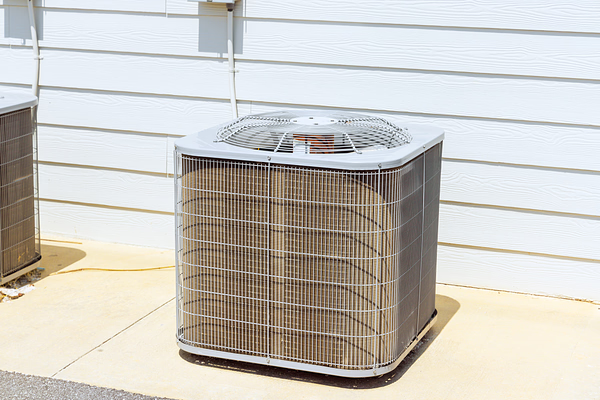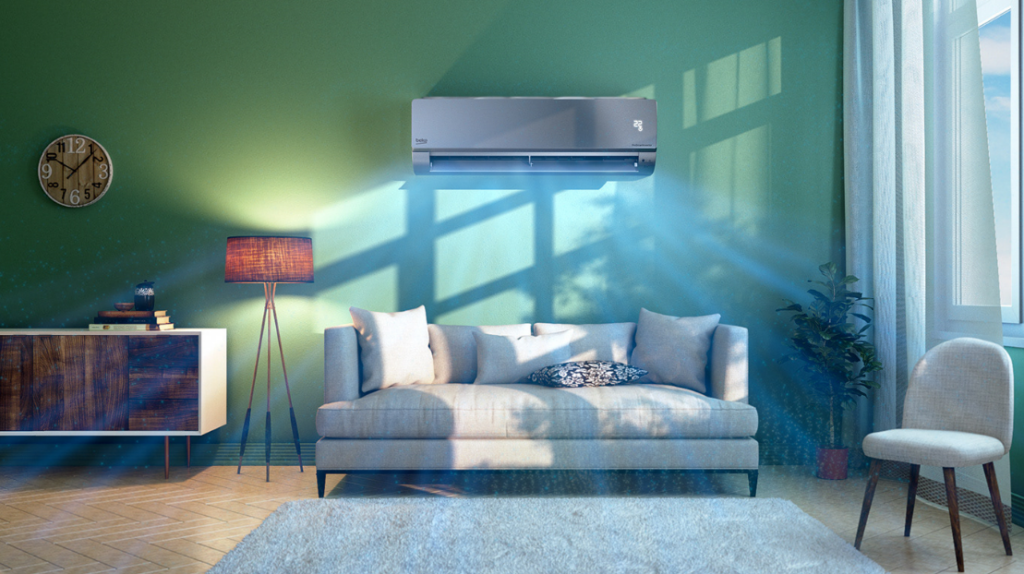Having an effective cooling system is now essential when the summer heat makes your house feel like an oven. But how do you choose the best option when there are so many options for home air conditioning? According to P & J Air Conditioning LLC, the ductless mini-split system and the central air conditioning system are the two most common options that homeowners take into consideration. In this guide, we’ll explore everything you need to know: how each system works, its pros and cons, the cost to install ductless AC versus HVAC installation costs, and more.
Break it Down: What do Central Cooling Systems and Ductless Systems Mean
Both are the best home air conditioning options, but which option is right for you will rely on your home’s layout, cooling requirements, and financial constraints.

Before diving into comparisons, let’s get clear on what each of these systems is.
- Central Cooling System
Through a system of ducts, a central air conditioning system is intended to cool the entire house. Cool air is circulated through ducts into different rooms by a single outdoor unit (the condenser) and an indoor unit (the air handler).

Let’s unlock the concept of the central cooling system, analyzing the pros and cons:
| Pros | Cons |
| Excellent for big houses. | Expensive Cooling System Installation |
| Vents are built into the walls or ceilings | less Flexible |
| Enhances Air Quality | High Energy Usage |
- Ductless Mini Splits
One or more indoor units coupled to an outdoor compressor make up a ductless mini-split system, a kind of silent cooling system. There is no need for ductwork because each indoor unit runs independently.

Let’s unlock the pros and cons of a ductless cooling system:
| Pros | Cons |
| Zoning Control | Visible Units |
| Fast Installation | Greater Initial Cost Per Unit |
| Energy-efficient cooling systems | Possibly Needing Several Units |
Centralized vs Ductless: How to Choose the Best Option
In 2025, it will no longer be confusing which is the best cooling system for homes is the most efficient one and the most affordable one. The ductless system may seem expensive at first, but it provides long-term durability, an AC system for multi-room cooling, and long-term cost-effectiveness.

Let’s explore the key factors that should guide your decision when choosing between a mini split vs central air.
- Do You Already Have Ductwork?
A central cooling system might be a more cost-effective option if your house already has ducts installed (as in a forced-air heating system). All you’ll have to do is add the air conditioner.
- How Big Is Your House?
A central air conditioning system that can evenly cool the entire house is usually advantageous for large homes. Multi-room cooling can be easily managed by central systems, which are built for scale.
- Do You Have Noise Sensitivity?
In these situations, ductless mini-splits or other quiet cooling systems are perfect. Their whisper-quiet operation makes them ideal for nurseries, libraries, and bedrooms.
- How Much Do You Spend on Cooling?
Up to 30% of the cooled air in inefficient systems can be lost due to duct leaks. Because of this, some homes—especially older ones with aging ductwork—have less efficient central air conditioning.
- To what extent does energy efficiency matter to you?
Ductless mini-splits are typically more efficient if you’re concerned about the environment and want to lower your carbon footprint. The absence of ductwork reduces energy loss, and many models meet or surpass energy standards.
Conclusion
Ductless mini-splits and central cooling systems are both good options, but which one is best for you will depend on your particular requirements. A central air conditioning system might be the best option if you have ductwork already and wish to effectively cool a large house. A ductless mini-split system provides strong, contemporary comfort if you require flexibility and energy efficiency and are working with a home without ducts. Therefore, you’ll be well on your way to choosing the best cooling system for your home if you take a step back and evaluate your priorities, which include budget, energy savings, aesthetics, and home layout.
FAQs
- Which is less expensive, ductless mini-split or central air?
For homes without ducts or small spaces, ductless systems are typically less expensive. For larger homes with existing ductwork, central systems may be more affordable. - Is ductless more energy-efficient?
Indeed. Due to improved zoning control and the lack of duct losses, ductless mini-splits typically perform more energy efficiently than central systems. - Can my house be heated by ductless air conditioning systems?
Yes! Heat pumps, which provide both heating and cooling capabilities, are a common component of ductless systems. - Do ductless systems need to be maintained?
Yes, to maintain performance, regular cooling system repair is important; the outdoor compressor should have an annual service, and its filter cleaned regularly. - Do ductless air conditioners make noise?
No, ductless systems are ideal for bedrooms because of their whisper-quiet operation. For comfort and noise reduction, it is essential.
